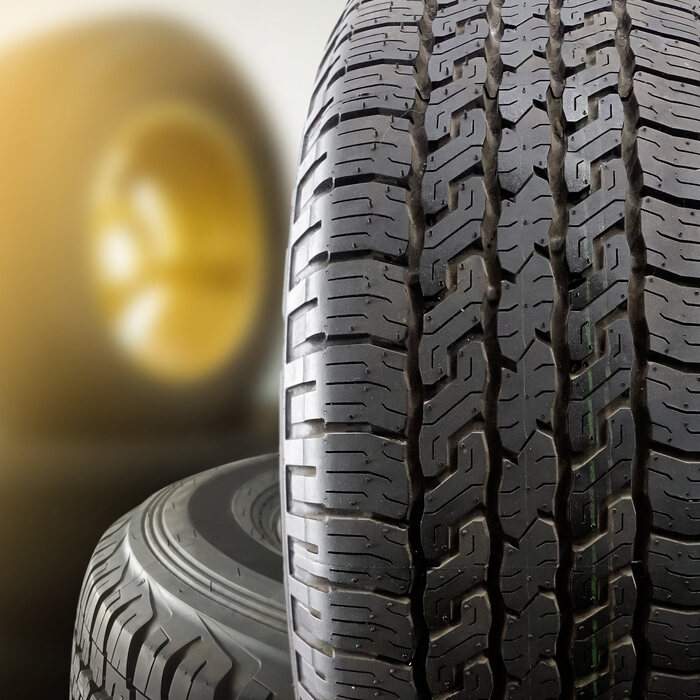CAN SUMMER TYRES BE USED ALL YEAR?
If you’re looking for a simple answer to whether you can use summer tyres all year, then yes, you can. HOWEVER, it is highly recommended that you don’t for a variety of reasons.
While it’s not a legal requirement that you use seasonal tyres, not doing so can affect your vehicle’s performance and handling, and in the long term cost you much more money and potentially lead to your car failing its MOT.
What are summer tyres?
Summer tyres, as the name suggests, are tyres that are specifically designed to be used during the warmer, summer months, in dry and wet conditions.
Summer tyres have larger tread blocks and fewer sipes (the grooves within a tread’s surface), which enable them to have much more traction and control in warmer conditions. Winter tyres have smaller tread blocks and more sipes, which allow for more purchase on snow, ice, or cold road surfaces.
Both summer and winter tyres used at the appropriate times of year are proven to improve handling and braking distances, as well as increase the life of the tyres. That means not only are you lowering risk, you’re also saving money in the long run by prolonging the amount of use you can get out of your tyres.
Summer tyres are also made from a much harder compound than winter tyres. When driving, your tyres will heat up. That means during the summer months when the roads are naturally much warmer, summer tyres are far less susceptible to damage. Being much softer than summer tyres, winter tyres can become soft and malleable on warm roads, which can lead to performance issues and affect responsiveness.
When should summer tyres be used?
Summer tyres are designed for use when temperatures are consistently higher than seven degrees celsius. There is a myth that summer tyres don’t perform to a high standard on wet roads, however, temperature is the biggest factor towards performance.
Once temperatures begin to regularly exceed seven degrees celsius, usually around February or March, you should consider switching from winter to summer tyres.
If you’re looking for new summer tyres, you can simply enter your vehicle reg in our store to buy them online.
The advantages of summer tyres
Summer tyres used during the warmer months have numerous advantages. Being much firmer than winter tyres, summer tyres are designed to grip warmer roads, and therefore allow for much better handling. Braking distances are also much shorter when using summer tyres in the summer, rather than winter tyres.
Summer tyres also perform much better than their winter counterparts when roads are wet, and can reduce the risk of aquaplaning.
Using the correct tyres for the weather conditions also helps to reduce friction, thereby contributing towards better fuel efficiency. It also reduces wear on the treads, which means tyres don’t need to be replaced as frequently, and will get you much more uses before needing to be replaced.
Are summer tyres appropriate for winter?
While summer tyres can be used year-round, it is heavily recommended that you don’t, and that you switch to season-appropriate tyres. Summer tyres have many differences to winter tyres that mean winter tyres are much more suited to cold temperatures and snowy roads.
During prolonged wintry conditions, you will notice significant performance issues with your vehicle if you’re yet to switch to winter tyres. There is a misconception that winter tyres should only be used during heavy snow, however temperature is the most important factor. Once the temperature consistently drops below seven degrees, it’s time to switch
Due to the size of the tread blocks and the fewer number of sipes, summer tyres struggle to grip on even slightly snowy or icy roads. Similarly, your braking and handling performance will be affected when the road is cold.
Using summer tyres when it rains
Of course summer tyres will perform well on warm, dry roads during the warmer months, but they’re also proven to be the best for braking and handling during wet conditions. They provide a much firmer grip on the road, which can lead to shorter braking distances than winter or all-season tyres, and help to prevent aquaplaning.
The dangers of using summer tyres during the winter
Being intended for warm roads, summer tyres are much firmer than winter tyres, and therefore provide less grip when it comes to snow, ice and general cold conditions. With less grip comes poorer handling, and along with it, longer braking distances and a much higher risk of slipping or skidding.
The harder compounds of a rubber tyre can also seize up when the conditions are below seven degrees celsius, which can lead to a greater risk of the tyre cracking, and cracks in your tyres can result in your car failing its MOT.
Are all-season tyres a good alternative?
All-season tyres are a popular compromise when you find yourself in a position where you can’t change tyres each season. However, for optimal performance, cost-effectiveness and safety, we would recommend switching your tyres depending on the time of year and the weather conditions.
All-season tyres perform better than summer tyres on cold roads, with winter tyres much better suited for extreme snow and ice.
Buy summer tyres online
While the short answer is ‘yes’, it is also caveated very quickly with ‘but you shouldn’t’. The harder rubber compound of summer tyres mean they’re ideal for warmer temperatures, leading to increased performance and fuel consumption.
Cost can be a major factor preventing drivers from owning two full sets of tyres. However, seasonal tyres, when used during the correct conditions, can save you much more money in the long run.
For more information see our guide to summer tyres, and check out our simple tool for buying car tyres online



 Same Day Fitting. Order By 10:30am
Same Day Fitting. Order By 10:30am
 38 Nationwide Fitting Centres
38 Nationwide Fitting Centres
 5 Year Warranty On All Tyres
5 Year Warranty On All Tyres
 Price Check Promise. Always Great Deals
Price Check Promise. Always Great Deals

 Find a Centre
Find a Centre

